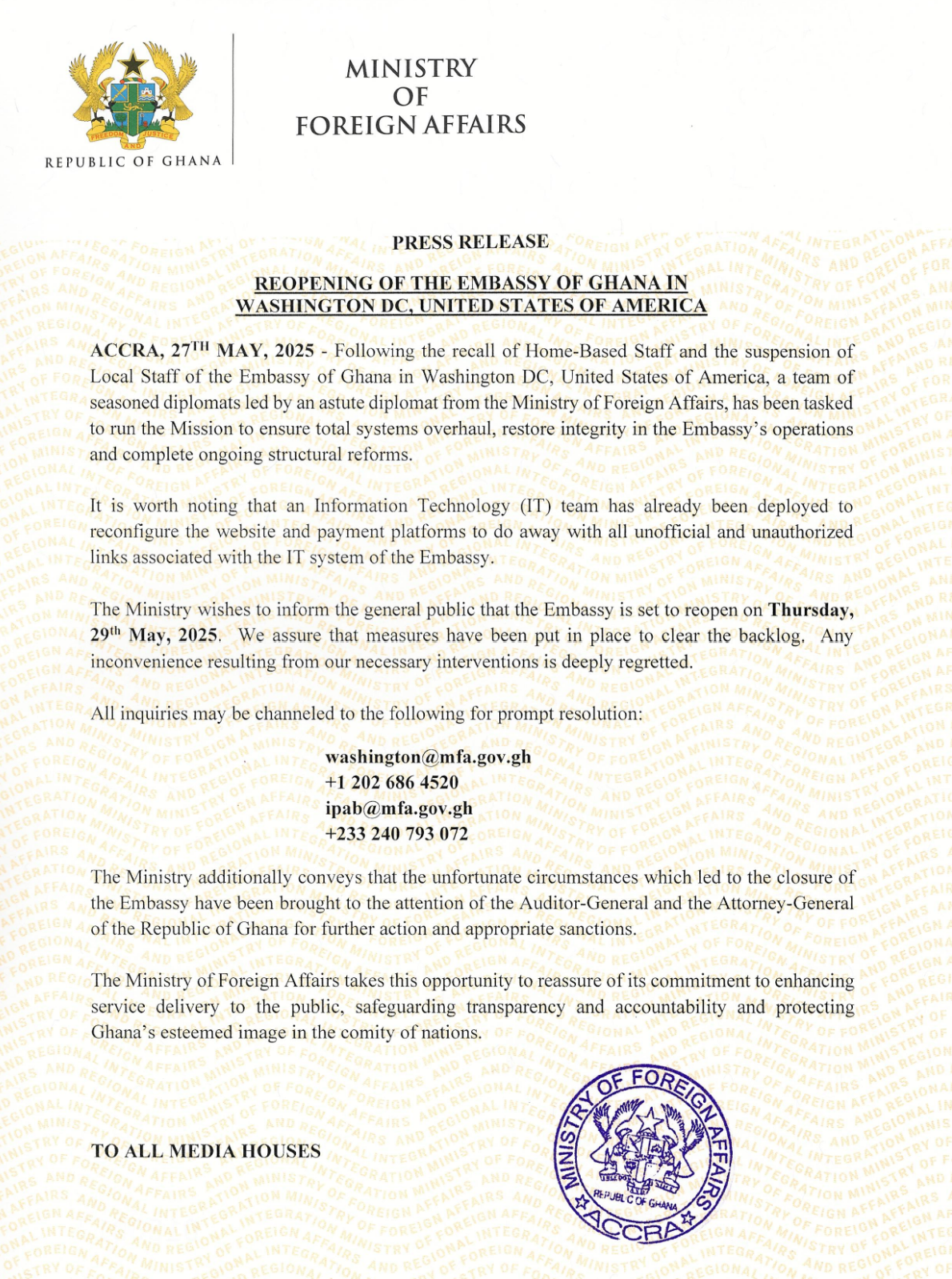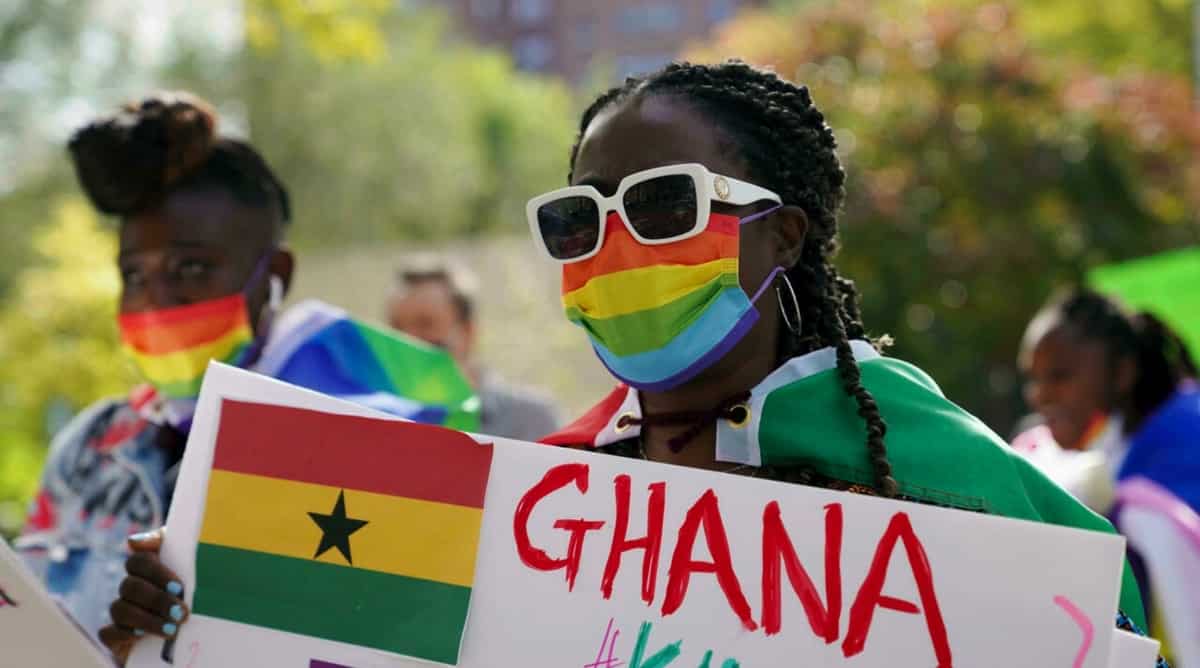The Ministry of Foreign Affairs has announced that Ghana’s Embassy in Washington DC will resume full operations on Thursday, May 29, just 48 hours after it was temporarily shut down in response to a major corruption scandal.
The closure, which was made public on May 26 by Foreign Affairs Minister Samuel Okudzeto Ablakwa, followed investigations into fraudulent activities allegedly carried out by Mr. Fred Kwarteng, a local staff member of the embassy’s IT unit.
In a swift response to the revelations, the Ministry undertook a sweeping internal overhaul, including the recall of all home-based officers posted to the mission and the suspension of all locally recruited personnel.
A statement from the Ministry dated May 27 confirmed that a team of senior diplomats, led by an experienced envoy, had been deployed to take over the management of the embassy. Their mandate includes restoring credibility, ensuring structural reforms are implemented, and overhauling internal systems compromised during the scandal.
To tighten cybersecurity and prevent future breaches, the Ministry has also dispatched a new Information Technology team to reset the embassy’s digital platforms and eliminate unauthorized links.

Background of the Scandal
The incident at the centre of the controversy involves Mr. Fred Kwarteng, who was recruited on August 11, 2017, to work in the embassy’s IT department. He is accused of creating an unauthorized portal that redirected visa and passport applicants to a private company he owned—Ghana Travel Consultants (GTC). Through this scheme, applicants were reportedly charged between US$29.75 and US$60 per service, with all proceeds going into Mr. Kwarteng’s personal account.
According to the Minister, “The investigations reveal that he and his collaborators operated this illegal scheme for at least 5 years.”
The charges, which were never sanctioned by the Ministry or approved by Parliament in accordance with the Fees and Charges Act, have led to Mr. Kwarteng’s immediate dismissal. His conduct has been reported to the Attorney-General, Dr. Dominic Ayine, for potential prosecution and recovery of illicitly obtained funds. A forensic audit by the Auditor-General is also underway to establish the full extent of the financial loss.
Steps Taken and Public Response
The Ministry has pledged to manage the backlog caused by the embassy’s brief closure and apologized for the disruption. “Any inconvenience resulting from our necessary interventions is deeply regretted,” the statement noted.
However, the decision to announce the closure via the Minister’s personal Facebook page has stirred debate. Critics argue that such a significant development required a more formal approach.
“This is a very damning thing. You just do not go on your Facebook page and put a thing like that there. Issue an official statement and sign it, or use your PR office and explain what you found and that it is being investigated further. Then it becomes a government statement. But putting it on your Facebook makes you open yourself up for some of this attack,” said The Herald newspaper’s Managing Editor, Larry Dogbey.
Others have applauded the Ministry’s decisive action and commitment to accountability.
“It is justified to commend Honourable Ablakwa for taking a step to nip whatever it is in the bud immediately before it blows out of proportion. People may have different views on what they think should be the appropriate approach, either based on interest, expertise, or political convenience, but at the moment, there can only be one approach to resolving the matter, which he is prepared to apply,” said Elikem Kotoko, National Deputy Organiser of the National Democratic Congress (NDC).
The Ministry has reiterated its resolve to safeguard Ghana’s image, ensure transparent service delivery, and uphold diplomatic standards across all its missions abroad.








